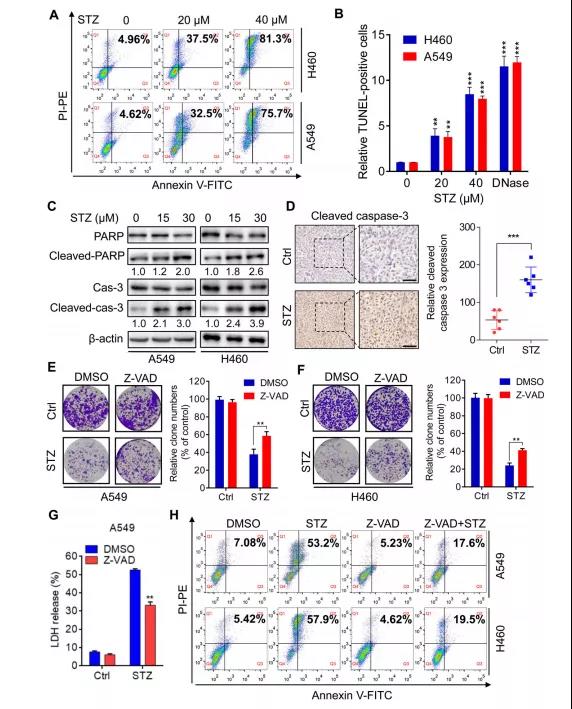MedComm | Sertaconazole provokes proapoptotic autophagy via stabilizing TRADD in nonsmall cell lung cancer cells

Open the phone and scan
Nonsmall cell lung cancer (NSCLC) is one of the most commonly diagnosed and lethal cancers characterized by relatively low overall cure and poor survival rates with great challenge for consistent effective clinical treatment. Here we demonstrated that the antifungal sertaconazole displays potent anti-NSCLC effect by promoting apoptosis in vitro and in vivo. Further studies found that sertaconazole induces complete autophagic flux, which contributes to sertaconazole-induced apoptosis and subsequent growth suppression in NSCLC cells. Further studies demonstrated that sertaconazole provokes TNF receptor type 1 associated death domain protein (TRADD) expression via stabilizing it from ubiquitination-mediated degradation, which results in Akt dephosphorylation and thereby triggers proapoptotic autophagy in NSCLC cells. Moreover, authors found that TRADD suppression reverses sertaconazole-induced proapoptotic autophagy and relieves growth suppression, indicating the vital role of TRADD-regulated proapoptotic autophagy in the anti-NSCLC activity of sertaconazole. In summary, their findings suggest that sertaconazole could be a highly promising anti-NSCLC drug by triggering proapoptotic autophagy via stabilizing TRADD, which may provide a new potential therapeutic option for patients with NSCLC.

Although the antifungal sertaconazole has recently been reported to inhibit HeLa cell growth, little is known about the anticancer effect of sertaconazole against NSCLC and the involved mechanisms are poorly investigated. In the present study, authors sought to repurpose sertaconazole for the treatment of NSCLC and investigate the efficacy against NSCLC to explore an alternative therapeutic drug for NSCLC treatment.

Sertaconazole suppresses NSCLC cell growth by triggering apoptosis
Article Access: https://doi.org/10.1002/mco2.102
Website for MedComm: https://onlinelibrary.wiley.com/journal/26882663
Looking forward to your contributions.


